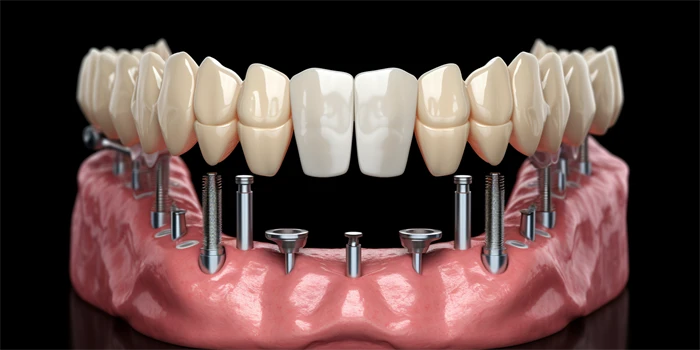Dental implants are regarded as a reliable and durable solution for missing teeth. However, there are cases where dental implants may fail due to various reasons. If you find yourself in a situation where your dental implant has failed, it is essential to take appropriate actions to minimize any complications or discomfort. In this article, we will discuss ten crucial steps to follow if your dental implant fails.

1. Recognize the Signs of Implant Failure
The first step is to identify the signs that indicate your dental implant has failed. These signs may include persistent pain, swelling, implant mobility, gum recession, and a loose crown or bridge. If you experience any of these symptoms, it is advised to consult your dentist immediately to determine if the implant has indeed failed.
It is worth mentioning that occasional discomfort and mild pain during the healing process is normal, but if these symptoms persist or worsen over time, it is an indication of a potential problem.
2. Contact Your Dentist
Once you suspect a dental implant failure, contacting your dentist or oral surgeon is crucial. They are the professionals who can accurately assess the situation and provide you with the necessary guidance. Schedule an appointment as soon as possible to prevent further complications.
3. Diagnostic Tests
During your visit, the dentist will perform several diagnostic tests to determine the reason for implant failure. These tests may include X-rays, CT scans, or taking impressions of your teeth. This evaluation will help identify if the failure is due to a problem with the implant itself, the surrounding bone, or other factors.
4. Discuss Treatment Options
Once the cause of the implant failure is identified, your dentist will discuss the available treatment options with you. The specific solution will depend on the reason for the failure and the overall condition of your oral health.
In some cases, the implant may need to be removed, and the area allowed to heal before considering a replacement. Other options may involve bone grafting, if the failure is due to inadequate bone support, or the placement of a new implant in a different location.
5. Consider Financial Factors
The cost of treating a failed dental implant may vary depending on the necessary procedures. On average, the cost of implant removal and replacement ranges between $3,000 and $5,000 per implant. However, costs can be higher if additional procedures, such as bone grafting, are required. It is essential to discuss the financial aspect with your dentist and check if your insurance may cover some of the expenses.
6. Follow Post-Treatment Instructions
After taking the necessary steps to address the implant failure, your dentist will provide you with post-treatment instructions. It is crucial to follow these instructions meticulously to ensure proper healing and minimize the risk of further complications. These instructions may include dietary restrictions, proper oral hygiene practices, and medication recommendations.
7. Maintain Regular Dental Check-ups
Regular dental check-ups are essential to monitor the progress of your failed implant treatment and ensure the overall health of your remaining teeth and gums. Your dentist will schedule follow-up appointments at appropriate intervals to assess the healing process and make any necessary adjustments to the treatment plan.
8. Assess Oral Hygiene Routine
Proper oral hygiene is crucial to prevent dental implant failure. After your implant failure, it is essential to reassess your oral hygiene routine in consultation with your dentist. They may recommend specific oral care products or modifications to your brushing and flossing techniques to ensure optimal oral health and prevent future failures.
9. Consider Alternative Options
If implant failure persists even after replacement or other treatments, considering alternative tooth replacement options may be necessary. Options such as dental bridges or removable dentures can provide functional and aesthetic benefits. Your dentist can guide you in choosing the most suitable alternative based on your unique situation.
10. Prioritize Overall Health
Lastly, it is crucial to prioritize your overall health as it plays a significant role in dental implant success. Factors such as smoking, uncontrolled diabetes, and poor oral hygiene can increase the risk of implant failure. By adopting a healthy lifestyle, managing any underlying health conditions, and maintaining good oral hygiene practices, you can significantly improve the chances of a successful dental implant procedure.
Frequently Asked Questions
1. Can a failed dental implant be fixed?
Yes, in most cases, a failed dental implant can be fixed. The specific treatment will depend on the cause of the failure and the overall condition of your oral health.
2. How long does it take to recover from dental implant failure treatment?
The recovery time can vary depending on the complexity of the treatment. It may take several weeks to months for complete healing to occur.
3. Can dental implant failure be prevented?
While there are certain risk factors that may increase the likelihood of implant failure, such as smoking and poor oral hygiene, following proper dental care instructions and regular check-ups can significantly minimize the chances of failure.
References:
- American Journal of Dentistry - Dental implants: Early and late implant failures.
- DentalCare.com - How Long Will a Dental Implant Last?
- WebMD - What is dental implant failure?



